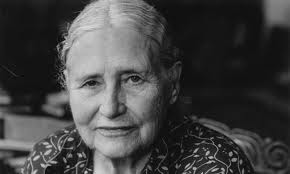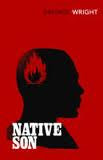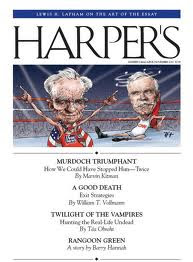
I am thoroughly confused as to how I actually feel about this book. On the one hand, I found it annoying and boring. On the other, I found it profound and enlightening.
The first level on which I feel divided by it is on the level of culture. Doris Lessing grew up in Zimbabwe, and lived there till she was about thirty. The book is full of her memories of Zim. She even went to my high school! I feel like I therefore ought to feel the kind of fondness for her I have for Bryony Rheam, but I can’t. We’re from the same physical location, but it’s a very different place, because while I’m Zimbabwean, she’s southern Rhodesian.
In this case, let me assure you, the past really is a foreign country. Apparently, it’s one where they eat steak and kidney pies, and say ‘I say old chap’ and feel that they are strangers in a strange land (DESPITE IT BEING WHERE THEY ARE ACTUALLY FROM). But anyway, shame. She’s a woman of her period, and we none of us escape our period.
And that’s another point. She keeps going on about her periods. The book is very much about the dawn of the feminist movement, about her relationships with men, about opportunity for women, and so on. Also her periods. You get the impression no one had ever written about periods before. Which, thinking about it, maybe they hadn’t. She seems to spend a lot of time agonising about feminist issues which now seem so obvious; but probably they are only obvious now because women before us did a lot of agonising. I think I might be irrirated with her in the same way you can be irritated with your mother; with someone to whom you owe a great deal.
Okay, what the book is actually about. It’s more or less six books. There is one overarching novel, called FREE WOMEN, and the novel is interspersed with sections from the notebooks of the author of the novel, Anna Wulf. The notebooks deal with various aspects of Anna’s life (politics, private thoughts etc etc), and as the novel is also autobiographical you feel you are hearing the same story from many different perspectives. I found it very interesting in terms of seeing how ordinary experience is filtered and reshaped to become fiction – what is excluded and what included.
The basic story, told in its many versions, is of a woman (Anna, or Ella as she is sometimes called) living in London in the mid 1950s, with her small daughter (Janet/Michael) her female friend (Molly/Julia) and her friend’s teenage son. Both women struggle with being divorced, and thus ‘free’ and are constantly sleeping with, and having their hearts broken by, married men. Anna is living off the royalties of her first novel, and Molly is an actress; both are initially committed socialists. Anna moves out eventually, after a failed relationship, and her daughter goes to boarding school. Living on her own, she begins to unravel mentally; but in the end you get the sense there she is going to be able to hold it together. There is a strong sense of what is learnt over a long life.
In an interview, Lessing said she wanted to capture London as it was in the middle of the twentieth century (as the great nineteenth century novelists did) and I feel she has succeeded. A mark of a great novel is I think when you really feel like you sort of know a place or a time as if you have been there, and this novel absolutely fills that requirement. (Let’s also give a shout out to A HOUSE FOR MR BISWAS on this front).
You learn a lot about what it was to be a communist in the middle of the twentieth century, just as news of Stalin’s crimes was being released. Read from the perspective of today, the idealism is really heatbreaking; they honestly believe communism will genuinely make a better world. It made me think how very cynical we are today; I don’t think hardly anyone believes there is a solution to the world being a mess – I think we just think that’s it’s natural state.
She’s in psychoanalysis, so you learn a lot about that too. She endlessly goes on about her dreams, and I skipped these parts, much as you switch off when people tell you about their dreams in real life. . . . . I was in a golden hall with a box, and in the box was a crocodile, and people were . . . SHUT UP Doris.
The book also really helps you understand what it was to live before the sexual revolution. It’s obssessed with sex as a deeply meaningful element of life in a way I find really foreign. You must prepare yourself for lines such as “Integrity is the orgasm” and strange, over intellectualised scenes such as:
“Anna, we have nothing to say to each other, why not?” “Because we aren’t the same kind of person” “What does that mean, the same kind of person?” he asked, injecting the automatic irony into his voice – a sort of willed, protective, ironic drawl . . . Then he said, “Come to bed.” In bed, he put his and on my breast and I felt sexual revulsion and said: “What’s the use, we aren’t any good for each other and never have been?” So we went to sleep.”
She has so much heartbreak and despair in her attempt to make sex meaningful, it is sort of astonishing. You honestly just want to take the character and sit her down in front of the SEX AND THE CITY. What a brave new world we live in.
I admired the central character Anna/Ella very much (Though she is probably I think Anna/Ella/Doris really). She was making such a noble struggle against so many massive odds: the partriachy, capitalism, commercialism, etc. They frequently return to the idea that there is a dark mountain, called human ignorance, and that great men stand on top of it, making great discoveries. Others, less great, work on pushing the boulder of humanity up the mountain. They keep trying, putting all their lives and talents into making small changes, and moving it a few inches forward. She is, she says, one of the boulder pushers.
On the other hand, she acts offended when people want to buy the movie rights to her book, because she is so horrified with commercialism. Get a GRIP, woman.
So the book while irritating, opened a window to me on to a particular era, and by so doing helped me understand my own time. And while the central character was irritating, she was also genuinely inspiring. There is a sense that what is worthwhile is the struggle – the struggle to live your own life in your own way – whether you are successful or not.
Also, let me just mention again, she went to my high school, and is a Nobel Laureate. Well done Convent! Yes Chisipite? Yes Arundel? Any Nobel Laureates? No? No? Any other major international prizes of any kind? No? I guess that means it’s time to SUCK IT!
(And you can start sucking it without even getting on to Kirsty Coventry)








